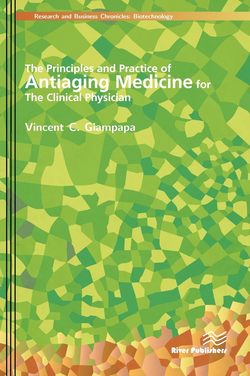Читать книгу The Principles and Practice of Antiaging Medicine for the Clinical Physician - Dr. Vincent C. Giampapa - Страница 10
На сайте Литреса книга снята с продажи.
Preface
ОглавлениеSeneca the Younger stated: “Having good health is very different from not being sick”; John Ray stated: “Health is better than wealth.” The subject of health and wealth was summed up by Charles C. Colton: “There is this difference between the two temporal blessings—health and money: Money is the most envied, but the least enjoyed; health is the most enjoyed, but the least envied … the poorest man would not part with health for money, but the richest would gladly part with all his money for health.”
Almost every middle-aged baby boomer would like to add 20 to 40 years of good health to the rest of his or her life. These people, now in their fifties, flee to gyms and health food stores and occupy the consultation seats in plastic surgeons’ offices. They are intent on looking and feeling good and are determined in their search for the true fountain of youth.
Vincent C. Giampapa, M.D., F.A.C.S., has been a visionary plastic surgeon in the field of anti-aging medicine, as well as an original contributor to the field of cosmetic surgery. In the early 1990s, in order to bring science and validity to the nascent field of anti-aging medicine, he became one of the founding members of the American Academy of Anti-Aging Medicine and subsequently the first president of the American Board of Anti-Aging Medicine.
The longing to look and feel healthy and young is commonly heard by plastic surgeons. Is cosmetic surgery related to the field of anti-aging? Of course! Plastic surgeons were the first to perform kidney transplantation. They prolong the lives and help the well-being of burned, traumatized, and severely deformed patients. There has always been a direct link between the body image and the mind. It is no surprise that plastic surgeons were the first to obtain and isolate stem cells and, subsequently, to remove fat through liposuction techniques. Although critics of anti-aging science and age management complain that people should age naturally, most baby boomers certainly believe the opposite. Because everyone wants to look and feel younger, plastic surgeons can use the knowledge and guidance in this landmark text not only for their practice but also for themselves.
Because most physicians have little formal training in anti-aging medicine, this text is a very welcome addition to the medical, surgical and research libraries. Dr. Giampapa has clearly described the basic concepts and coming advances in this rapidly evolving field. Within the maze of anti-aging medicine, information and techniques, a guide is essential for directing the neophyte. Dr. Giampapa admirably fills this need and has even given us a new theory with which to conceptualize the aging process in an organized scientific manner. This extremely difficult task has been completed successfully.
In this readable and well-organized text, Dr. Giampapa provides 13 Chapters filled with clinically useful information and medical references for practicing physicians and plastic surgeons alike.
Chapters I–IV help answer the ever-present question, “What is aging and how can we modify it to improve the quality and quantity of our patients’ lives?” Dr. Giampapa presents a new paradigm of aging supported by the latest research on DNA.
Chapters V–XI address specific treatment recommendations. Dr. Giampapa presents valid scientific data to support anti-aging medicine, the integrity of which was questioned throughout the 1990s. The relationship between longevity and caloric restriction, mitochondrial oxidation, chronic degenerative inflammation and immunopathology—along with low-glycemic diets and hormonal restoration, growth and rejuvenation factors, viral vector delivery systems and much more—is a well-proven reality today. How can these advances not help patients age optimally?
Chapter XII advises practitioners on the introduction of this exciting subject into their practices.
In Chapters XIII and XIV, we can all share in the excitement about what the future holds with regard to potential stem cell treatments; regenerative cellular medicine; implantation of futuristic artificial organs to treat diabetes and heart, liver and kidney diseases; and the regeneration of a damaged brain and body with computer interfaces.
We must put preexisting prejudices aside and look scientifically at this new specialty, which has the potential to add years of health and longevity to all our lives.
Dr. Giampapa must be congratulated on providing a catalytic text, a road map to a possible future in which cosmetic surgeons may provide this new specialty to their patients, in combination with the latest surgical procedures that have already been mastered. New and exciting research has shown that, in general, women who undergo facelifts live up to nine years longer than those who do not.*
Without question, we must redefine what it means to be a cosmetic surgeon of the future.
Steven M. Hoefflin, M.D., F.A.C.S.
Associate Clinical Professor, Division of Plastic and
Reconstructive Surgery, UCLA School of Medicine
*American Society of Plastic and Reconstructive Surgeons (ASPRS). 2002; Chicago, IL.
